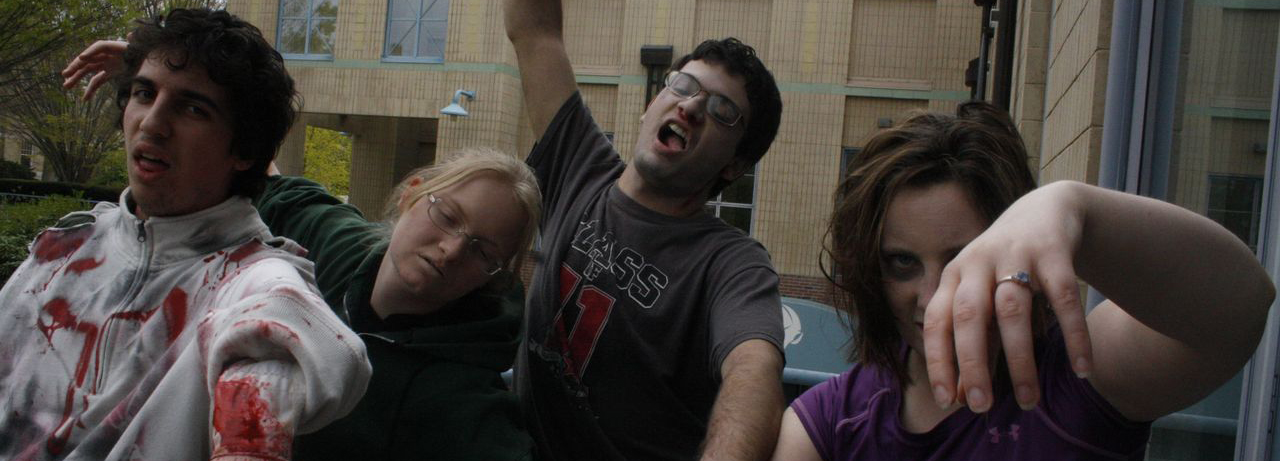Zombie Nation: Required Reading…“World War Z”
Posted on by
Yesterday we heard about a Michigan State Professor using zombies to make course work compelling. So who else is incorporating zombies into the curriculum? The University of Rhode Island has also realized students can learn a thing or two from the undead.
This spring 25 URI pharmacy students set up a mock dispensing clinic where they handed out anti-viral medications such as Zombivir and Gummivir (really just Sour Patch and Gummy Bears candies) to prevent the spread of “zombiism.” The simulated distribution clinic was the brainchild of Jeffrey Bratberg, URI clinical associate professor of pharmacy and an expert on bioterrorism, pandemics, and natural disasters.
“This mock point of dispensing (POD) operation, is the standard response to outbreaks of small pox, flu or anthrax” Bratberg said. At URI, Bratberg’s public health class teaches pharmacy students how to recognize infectious disease outbreaks, how they spread among populations, what the symptoms look like and where in the world they develop.
 “We have been working regularly with Department of Health throughout the semester, and its personnel came to the class to train and certify the students as mass antibiotic dispensers,” the professor said.
“We have been working regularly with Department of Health throughout the semester, and its personnel came to the class to train and certify the students as mass antibiotic dispensers,” the professor said.
So what better way to test students’ knowledge then with a mock zombie pandemic? The students got a clue about the direction of the class early in the semester when they were required to read the books, The Zombie Survival Guide and World War Z. And when it came time to put what they learned to the test, the class tried to make the simulated event as real as possible, using the same equipment found at real emergency clinics and applying real-world scenarios.
“We have all kinds of scenarios, including pregnant women, hysterical individuals, those who want to volunteer at the clinic, but are not part of the core group,” Bratberg said. “We want to really test our response, while bringing a bit of levity to the proceedings.”
We couldn’t agree more, humor of course is the best medicine!
Check out URI’s Newsreel here: [youtube]http://www.youtube.com/watch?v=eHVOVG6ZZQ4[/youtube]
Newsreel produced by URI Communications
Leave a Comment:
What would your required reading (or viewing) list include? What would your fictional virus be called? Leave a comment and you may inspire a new course!
For more information, please contact Jeffrey Bratberg, PharmD at jefbratberg@uri.edu. On Twitter @JefBratberg
3 comments on “Zombie Nation: Required Reading…“World War Z””
Comments listed below are posted by individuals not associated with CDC, unless otherwise stated. These comments do not represent the official views of CDC, and CDC does not guarantee that any information posted by individuals on this site is correct, and disclaims any liability for any loss or damage resulting from reliance on any such information. Read more about our comment policy ».
Great to see a college of pharmacy use humor to prepare students for emergency response. Excellent idea!
Even more brilliant in person! Glad to see the hard work of the students and Dr. Bratberg is being recognized! Great simulation for other universities to experience; how to handle human health outbreaks is something more people need to be trained in and familiar with.
Fear mongering, that’s just plain stupid. First infecting the people’s mind and then creating the real outbreak, well done CDC & Co. Looks like you don’t have anything else better to do. Researching and creating diseases instead of promoting health is a crime against humanity.